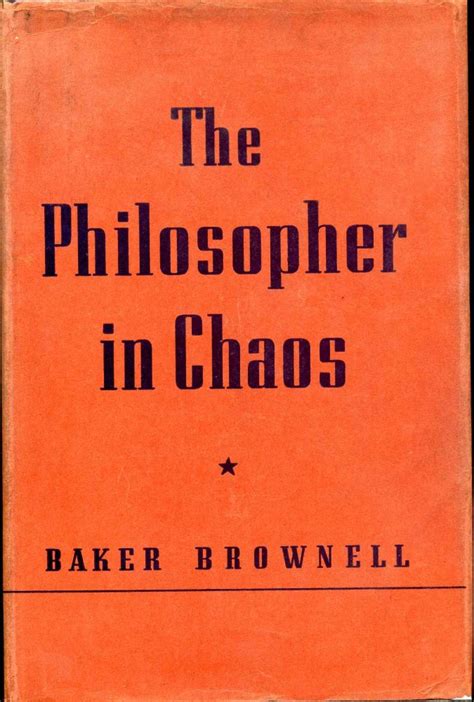A Quote by Martin Luther King, Jr.
The good neighbor looks beyond the external accidents and discerns those inner qualities that make all men human and, therefore, brothers.
Related Quotes
A State, in idea, is the opposite of a Church. A State regards classes, and not individuals; and it estimates classes, not by internal merit, but external accidents, as property, birth, etc. But a church does the reverse of this, and disregards all external accidents, and looks at men as individual persons, allowing no gradations of ranks, but such as greater or less wisdom, learning, and holiness ought to confer. A Church is, therefore, in idea, the only pure democracy.
They're all qualities wrongly called feminine: attention to detail, patience, empathy. I don't have children, but I was raised as a female to have those qualities because they're perceived as feminine. Until men are raised with those qualities, too, they won't have the full circle of human qualities.
The basic idea of Zen is to come in touch with the inner workings of our being, and to do this in the most direct way possible, without resorting to anything external or superadded. Therefore, anything that has the semblance of an external authority is rejected by Zen. Absolute faith is placed in a man's own inner being. For whatever authority there is in Zen, all comes from within.
The nature of the mind is such that if certain mental qualities are developed on a sound basis, they not only remain, but they also increase. In fact, once properly developed, the mind's good qualities eventually increase indefinitely. Therefore spiritual practice brings us long-term happiness and inner strength.
We can never obtain peace in the world if we neglect the inner world and don't make peace with ourselves. World peace must develop out of inner peace. Without inner peace it is impossible to achieve world peace, external peace. Weapons themselves do not act. They have not come out of the blue. Man has made them. But even given those weapons, those terrible weapons, they cannot act by themselves. As long as they are left alone in storage they cannot do any harm. A human being must use them. Someone must push the button. Satan, the evil powers, cannot push that button. Human beings must do it.
There is, however, in art another kind of external similarity which is founded on a fundamental truth. When there is a similarity of inner tendency in the whole moral and spiritual atmosphere, a similarity of ideals, at first closely pursued but later lost to sight, a similarity in the inner feeling of any one period to that of another, the logical result will be a revival of the external forms which served to express those inner feelings in an earlier age.
We want to believe in the essential, unchanging goodness of people, in their power to resist external pressures, in their rational appraisal and then rejection of situational temptations. We invest human nature with God-like qualities, with moral and rational faculties that make us both just and wise. We simplify the complexity of human experience by erecting a seemingly impermeable boundary between Good and Evil.
Happiness, whether consisting in pleasure or virtue, or both, is more often found with those who are highly cultivated in their minds and in their character, and have only a moderate share of external goods, than among those who possess external goods to a useless extent but are deficient in higher qualities.
The way to develop inner peace through meditation begins with the recognition that the destroyer of inner peace is not some external foe, but is within us. Therefore, the solution is within us too. However, that inner change does not take place immediately in the way that we switch on a light, but takes weeks, months and years.
Art arises in those strange complexities of action that are called human beings. It is a kind of human behavior. As such it is not magic, except as human beings are magical. Nor is it concerned in absolutes, eternities, "forms," beyond those that may reside in the context of the human being and be subject to his vicissitudes. Art is not an inner state of consciousness, whatever that may mean. Neither is it essentially a supreme form of communication. Art is human behavior, and its values are contained in human behavior.






































